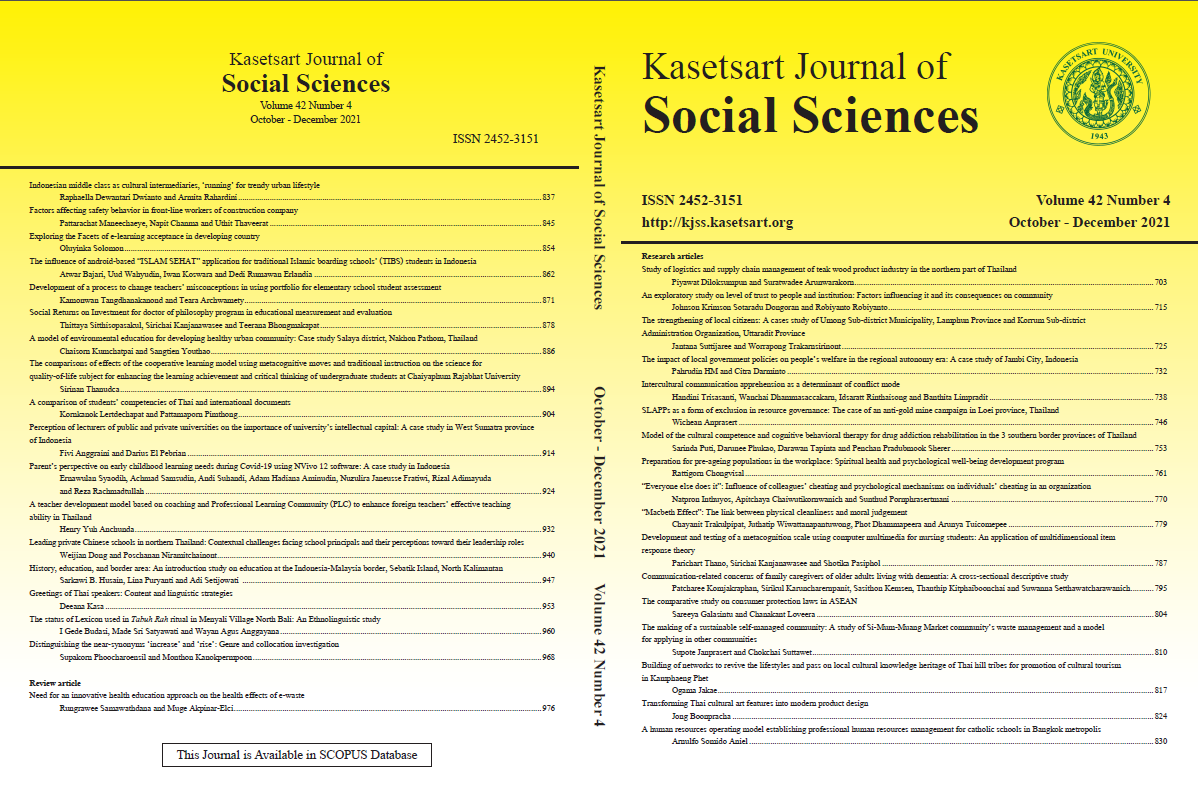The making of a sustainable self-managed community: A study of Si- Mum-Muang Market community’s waste management and a model for applying in other communities
Keywords:
circular economy, cooperation of public, private, and community sectors, participatory action research, sustainable self-managed, waste managementAbstract
With a population of approximately 40,000 and a circulation of 6,000 tons of fruit and vegetables, Si-Mum-Muang Market community generates 200 tons of waste per day. This waste is composed of 80 percent organic waste, 10 percent recycle waste, and 10 percent general waste. In short, there is a massive waste disposal problem at this business market. This research is ultimately aimed at finding sustainable waste management. It draws on Participatory Action Research (PAR) including in-depth interviews, questionnaires, and group discussions to examine the waste management process at this location. The waste management process reflected the cooperation of public, private, and community sectors under the economic, social, cultural, and environmental dimensions for suitable forms of waste management practices. The study revealed that the average score for waste management practice given by the community’s stakeholders was 3.35 (moderate level). The key to successful waste disposal is waste separation at source and waste utilization. A new innovative-alternative for reinforcing a sustainable self-management community is achievable by co-establishing waste management constitutions by stakeholders in the community, also relying on the development of that community’s sustainable self-management constitution and its measuring index. This can be applicable to other communities. The circular economy is applied here in terms of recycled materials and organic waste, increasing the hiring of direct labor and indirect labor in recycle business and related business.
Downloads
Published
How to Cite
Issue
Section
License

This work is licensed under a Creative Commons Attribution-NonCommercial-NoDerivatives 4.0 International License.
This is an open access article under the CC BY-NC-ND license http://creativecommons.org/licenses/by-nc-nd/4.0/










